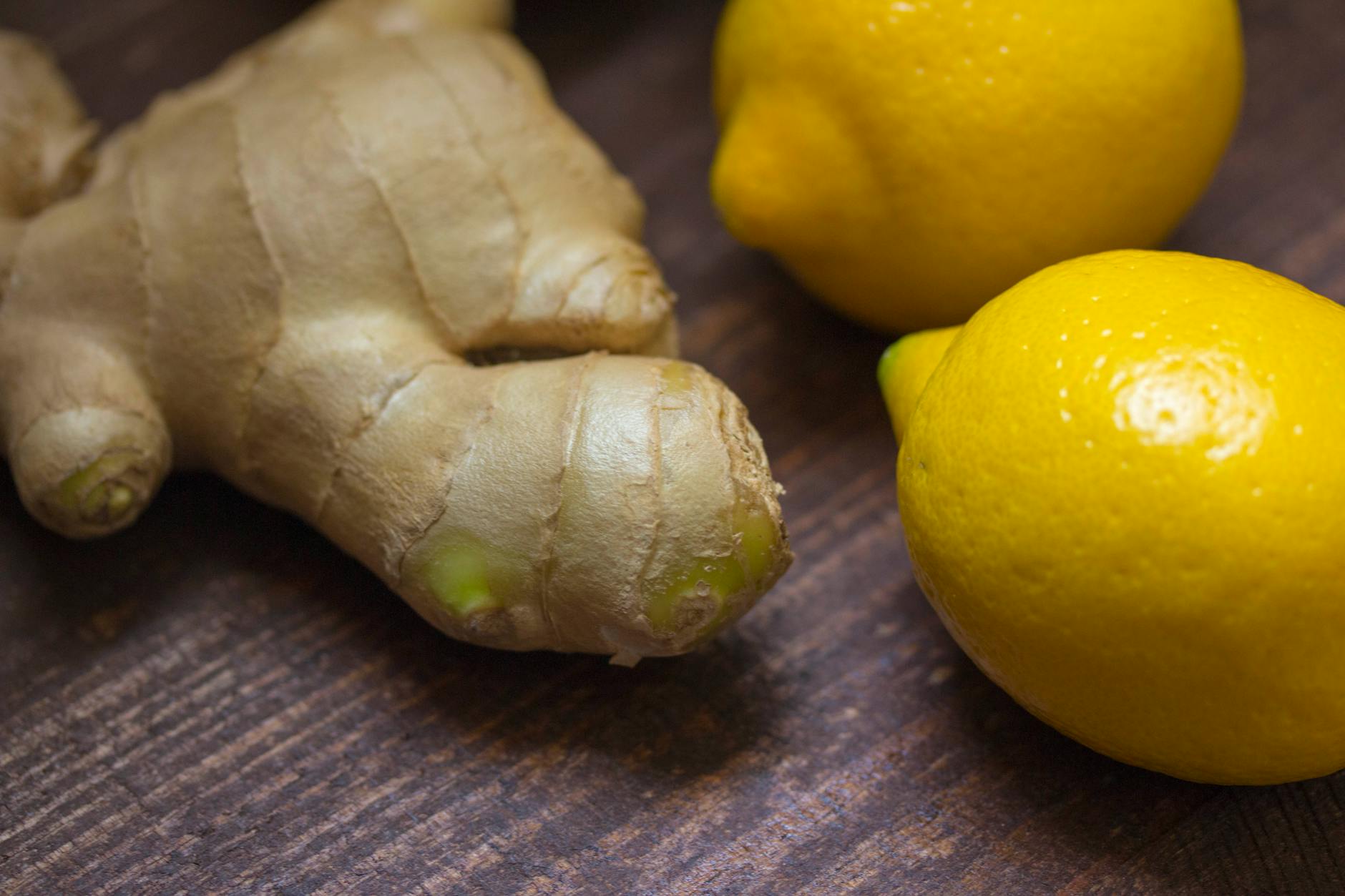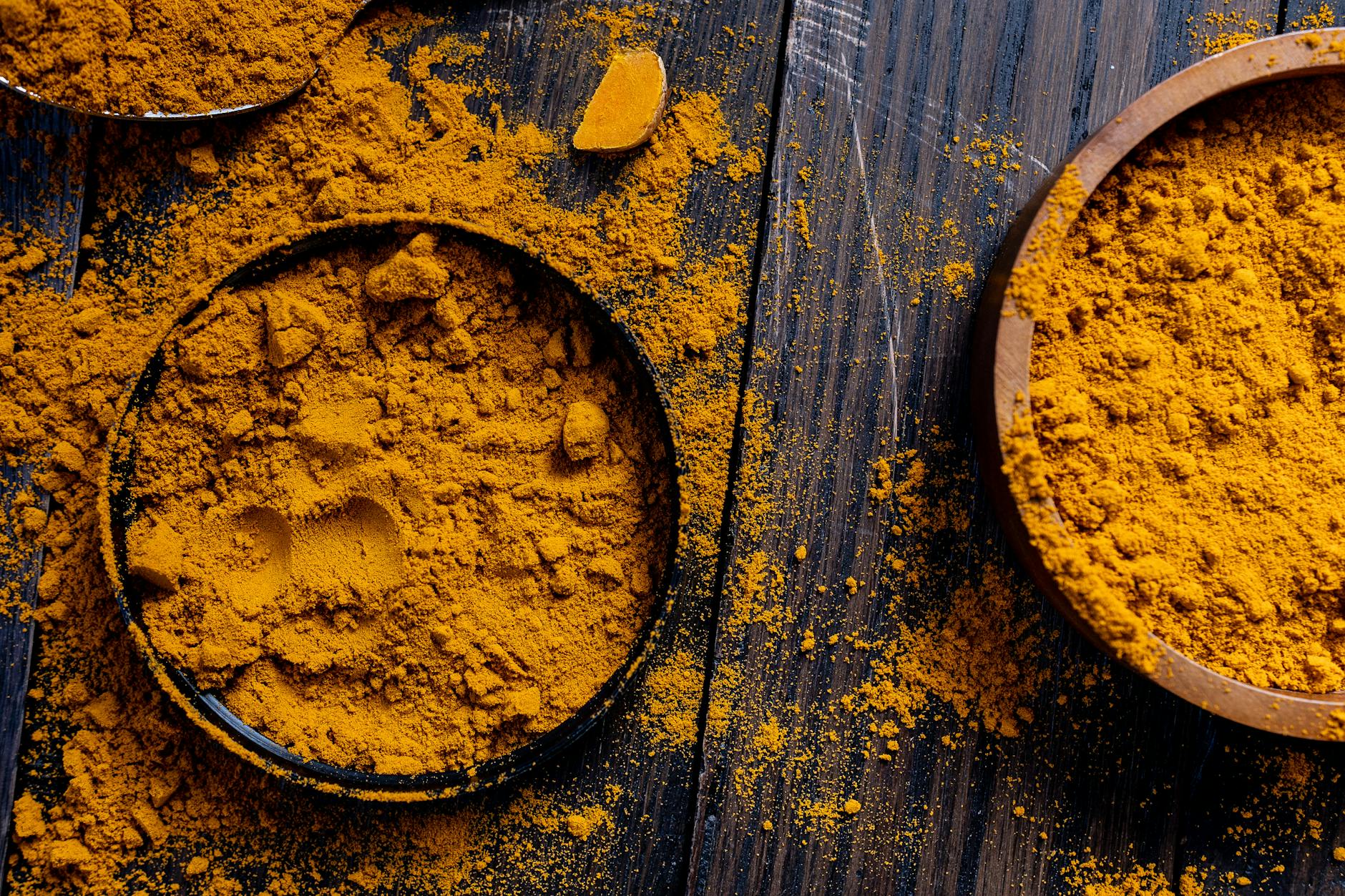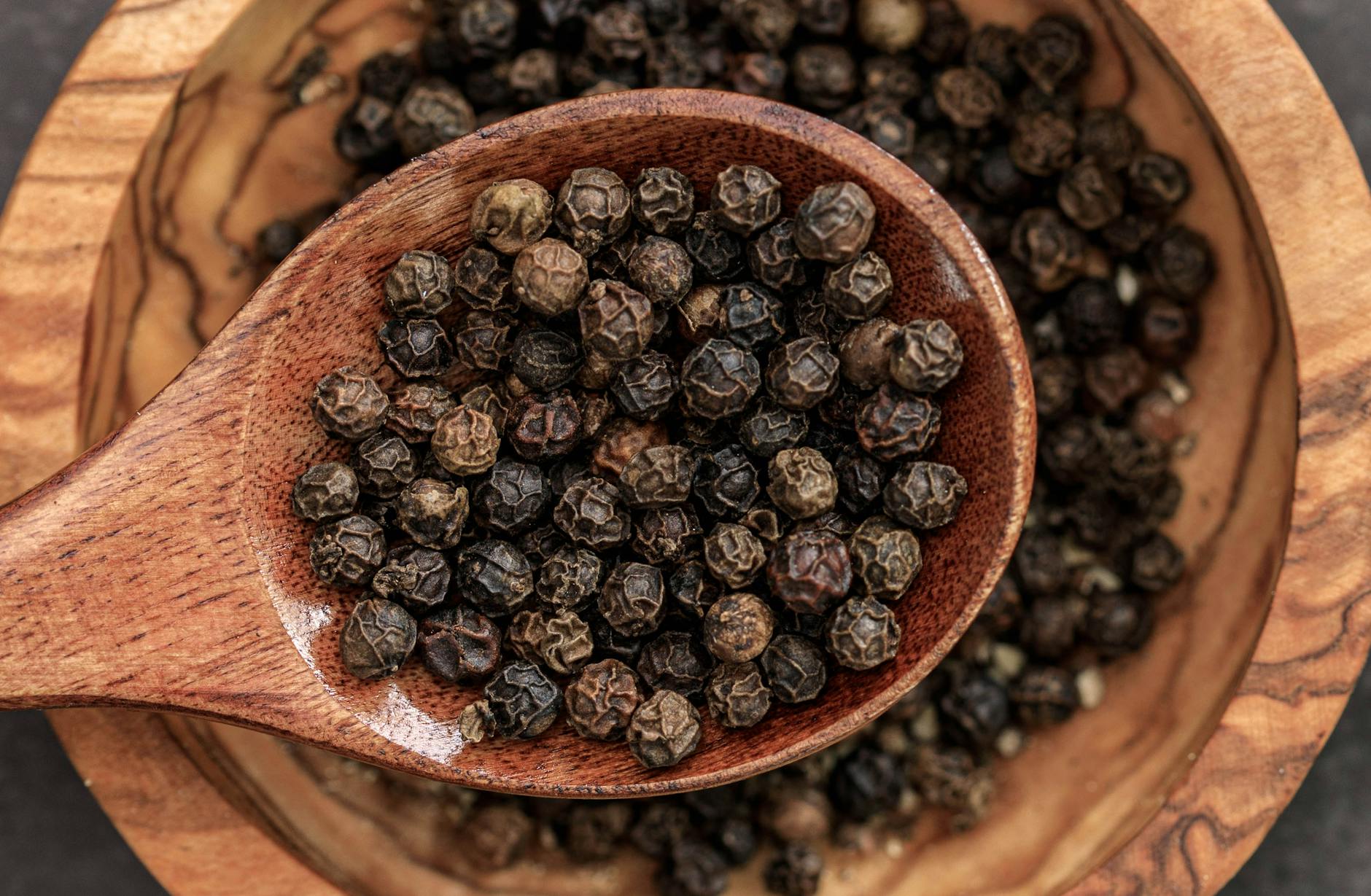Some herbs and spices, such as ginger and black pepper, have anti-inflammatory chemicals that can help reduce inflammation and improve general health.
Inflammation is the body’s mechanism for combating infections and healing.
However, in some cases, inflammation can go out of control and linger longer than necessary. This is known as chronic inflammation, and research has connected it to a variety of ailments, including diabetes and cancer.
Diet is extremely important in maintaining good health. What you eat, including herbs and spices, might alter your body’s inflammatory levels.
This article examines the research behind 9 herbs and spices that may help reduce inflammation.
Many of the research in this article discuss substances known as inflammatory markers. These signify the existence of inflammation.

1. Ginger
Ginger (Zingiber officinale) is a tasty spice with a spicy and sweet flavor. This spice can be enjoyed in a variety of forms, including fresh, dried, and powdered.
Aside from its culinary purposes, ginger has been used in traditional medicine for thousands of years to treat a variety of illnesses. These include migraines, colds, nausea, arthritis, and high blood pressure.
Ginger contains over 100 active chemicals, including gingerol, shogaol, zingiberene, and zingerone, to name just a few. These are most likely responsible for its health benefits, which include reducing inflammation in the body.
An analysis of 16 research, including 1,010 people, revealed that ingesting 1,000-3,000 mg of ginger daily for 4-12 weeks significantly reduced inflammatory indicators when compared to a placebo. The indicators included CRP and TNF-α.
Other studies investigated the benefits of ingesting 500-1,000 mg of ginger daily in persons with osteoarthritis, a degenerative disease characterized by joint inflammation.
Ginger has been shown in trials to lower inflammatory markers including TNF-α and IL-1β, reduce joint discomfort, and improve joint mobility.
Ginger is also extremely adaptable and easily incorporated into a variety of meals, including stir-fries, stews, and salads. You can also buy ginger supplements in health food stores or online.
Ginger has various active chemicals that appear to lower inflammatory indicators in the body.
2. Garlic
Garlic (Allium sativum) is a popular spice with a pungent aroma and flavor. People have used it in traditional medicine for thousands of years to cure arthritis, coughs, constipation, infections, toothaches, and other ailments.
The sulfur compounds in garlic appear to have anti-inflammatory characteristics and account for the majority of its health benefits.
A study of 17 high-quality studies with over 830 individuals spanning 4-48 weeks discovered that people who took garlic supplements had considerably lower blood levels of the inflammatory marker CRP.
Aged garlic extract significantly lowered blood levels of CRP and TNF-α.
Garlic may boost antioxidant levels, including glutathione (GSH) and superoxide dismutase (SOD), and regulate inflammation markers like IL-10 and NF-κB.
Garlic is a versatile and easy ingredient to incorporate into your recipes. Alternatively, you can buy concentrated garlic and aged garlic extract supplements at health food stores or online.
Garlic contains sulfur compounds, which appear to lower inflammatory indicators and raise levels of protective antioxidants.
3. Turmeric
Turmeric (Curcuma longa) is a spice used in Indian cuisine since antiquity.
It contains nearly 300 active chemicals. The main one is curcumin, an antioxidant with strong anti-inflammatory effects.
Curcumin has been demonstrated in numerous studies to inhibit the activation of NF-κB, which activates genes that induce inflammation.
A review of 15 high-quality trials examined 1,223 persons who took curcumin at doses ranging from 112-4,000 mg per day for 3-36 weeks.
Curcumin dramatically lowered inflammatory indicators compared to a placebo. Markers included IL-6, hs-CRP, and MDA.
Curcumin supplements were discovered in studies on persons with osteoarthritis to provide pain alleviation comparable to the standard nonsteroidal anti-inflammatory medications (NSAIDs), ibuprofen, and diclofenac.

Unfortunately, turmeric contains only 3% curcumin by weight, and your body does not absorb it efficiently. Curcumin is better taken with black pepper since the latter includes piperine, which can boost curcumin absorption by up to 2,000%.
If you want to use curcumin for anti-inflammatory benefits, you should get curcumin pills that also contain black pepper extract or piperine. You can get them at health food stores or online.
Curcumin, turmeric’s most well-known medicinal ingredient, appears to lower inflammation and alleviate osteoarthritis symptoms. Taking it with black pepper significantly enhances the amount of curcumin you absorb.
4. Cardamom
Cardamom (Elettaria cardamomum) is a spice from Southeast Asia. It has a rich sweet and spicy flavor.
Taking cardamom supplements may lower inflammatory indicators like CRP, IL-6, TNF-α, and MDA. Furthermore, one study discovered that cardamom increased antioxidant levels by 90%.
An 8-week trial of 80 persons with prediabetes found that ingesting 3 grams of cardamom daily significantly lowered inflammatory markers such as hs-CRP, IL-6, and MDA when compared to a placebo.
Similarly, in a 12-week research, 87 patients with nonalcoholic fatty liver disease (NAFLD) were given 3 grams of cardamom daily or a placebo.
Cardamom supplementation significantly lowered inflammatory markers such as hs-CRP, TNF-α, and IL-6. Taking cardamom also decreased the severity of fatty liver disease.
Cardamom’s rich, nuanced taste enhances curries and stews. The spice is sometimes sold as a powder or pill supplement.
Cardamom appears to boost antioxidant levels and reduce inflammatory indicators in the body.
5. Black Pepper
Black pepper (Piper nigrum L.) is renowned as the “king of spices” due to its global popularity. Traditionally, black pepper was used to treat asthma, diarrhea, and a variety of other gastrointestinal disorders.
According to research, black pepper and its major active ingredient, piperine, may help reduce inflammation in the body.
Piperine reduces joint swelling and inflammation indicators in arthritis patients, including IL-1β, TNF-α, and PGE2.
Piperine reduced redness, sneezing frequency, and inflammatory markers such as IL-6 and IL-1β in mice with asthma and seasonal allergies. It also reduced IgE antibody levels.
However, limited human studies have been undertaken on black pepper’s anti-inflammatory qualities. Scientists must conduct further research to investigate its consequences.
Black pepper is commonly available and easy to incorporate into your diet. Season your cooking with a dab of ground black pepper. It pairs well with vegetables, meat, fish, poultry, and pasta meals.
According to test tube and animal studies, black pepper and one of its active constituents, piperine, may reduce inflammation. However, further human study is required to evaluate these impacts.

6. Ginseng
Ginseng is a plant that Asians have utilized for thousands of years, and it is prized for its therapeutic benefits.
The two most common ginseng varieties are Asian ginseng (Panax ginseng) and American ginseng.
Their effects and active component concentrations differ. According to reports, Asian ginseng is more energizing than American ginseng, which is supposed to be more soothing.
Ginseng has been linked to a lot of health advantages, primarily because of its active components known as ginsenosides. Their effects include the reduction of inflammation in the body.
A study of nine trials examined 420 patients who had elevated blood levels of the inflammatory marker CRP. Those that received 300-4,000 mg of ginseng per day for 4-24.8 weeks saw significant reductions in CRP levels.
Ginseng’s anti-inflammatory benefits may stem from its ability to block NF-κB, a chemical messenger that activates genes associated with inflammation.
Similarly, another study of 7 studies encompassing 409 persons indicated that consuming 1,000-3,000 mg of ginseng daily for 3-32 weeks dramatically lowered inflammatory markers, including IL-6 and TNF-α.
Ginseng is an easy addition to your diet. You can steep its roots in tea or use them in soups and stir-fries. Alternatively, ginseng extract can be taken as a supplement. It is available in capsule, pill, and powder form in health food stores and online.
Ginseng and its active components, ginsenosides, appear to lower inflammatory indicators.
7. Green Tea
Green tea (Camellia sinensis L.) is a popular herbal drink that is frequently praised for its health advantages.
This plant is rich in polyphenols, particularly epigallocatechin-3-gallate (EGCG). According to studies, these chemicals provide benefits for the brain and heart. They may also help people lose fat and reduce inflammation.
Animal and test-tube studies have revealed that EGCG can help reduce inflammation associated with inflammatory bowel illnesses (IBD), including ulcerative colitis and Crohn’s disease.
One study looked at persons with ulcerative colitis who did not respond well to traditional therapies. Taking an EGCG-based supplement daily for 56 days improved symptoms by 58%, while the placebo group experienced no improvement.
Green tea polyphenols appear to help with inflammatory health issues like osteoarthritis, rheumatoid arthritis, Alzheimer’s disease, gum disease, and even certain cancers.
Green tea leaves are readily available and simple to prepare into a wonderful tea. Alternatively, you might buy matcha powder or green tea extract supplements.
Green tea’s anti-inflammatory properties appear to be attributable to polyphenols, specifically EGCG.

8. Rosemary
Rosemary (Rosmarinus officinalis) is a sweet and aromatic Mediterranean herb.
According to research, rosemary may assist in lessening inflammation. This is thought to be due to its high concentration of polyphenols, specifically rosmarinic acid and carnosic acid.
A 16-week trial of 62 persons with osteoarthritis found that drinking rosmarinic acid-rich tea on a daily basis dramatically reduced pain and stiffness while increasing knee mobility when compared to a placebo.
Rosmarinic acid has been shown in laboratory and animal tests to lower inflammation indicators in a variety of inflammatory disorders, including atopic dermatitis, osteoarthritis, asthma, gum disease, and others.
Rosemary is a great spice for a variety of meats, including beef, lamb, and chicken. You can purchase as a dried herb, fresh or dried leaves, or powdered powder.
It is high in polyphenols, which appear to have anti-inflammatory properties.
9. Cinnamon
Cinnamon is a wonderful spice derived from the bark of trees in the Cinnamomum family.
There are two primary forms of cinnamon: Ceylon cinnamon, usually known as “true” cinnamon, and Cassia cinnamon, which is the most widely available.
People have valued cinnamon for its health benefits for thousands of years.
A review of 12 research, including over 690 participants, revealed that ingesting 1,500-4,000 mg of cinnamon daily for 10-110 days significantly lowered the inflammatory markers CRP and MDA when compared to a placebo. Also, cinnamon increases the body’s antioxidant levels.
Interestingly, the study discovered that only Cassia cinnamon, the most prevalent kind of cinnamon, lowered both CRP and MDA levels. Ceylon cinnamon solely lowers MDA levels.
Similarly, a review of 6 research involving 285 patients revealed that ingesting 1,200-3,000 mg of cinnamon daily for 8-24 weeks significantly lowered CRP levels.
This benefit was particularly noticeable in disorders with elevated CRP levels, such as NAFLD, type 2 diabetes, and rheumatoid arthritis.
Notably, while cinnamon is safe in modest doses, overuse can be hazardous. Cinnamon, particularly the more common Cassia species, contains substantial amounts of coumarin. This chemical has been associated with liver damage when consumed in excess.
Cinnamon is a reasonable daily intake of 0.05 mg per pound (0.1 mg per kilogram of body weight). Each teaspoon (2.5 grams) of Cassia cinnamon contains 7-18 milligrams of coumarin.
This suggests that the average adult should not consume more than one teaspoon (2.5 grams) of cinnamon each day.
To avoid negative effects, season with cinnamon moderately.
Numerous studies have connected cinnamon consumption to decreased inflammation. Use cinnamon sparingly, as large dosages can induce negative effects.
To Conclude
Inflammation is a natural process that, if prolonged, increases the risk of health issues.
Fortunately, the foods you eat can help lower inflammation in your body. The herbs and spices discussed in this article can help reduce inflammation while adding flavor to your diet.
